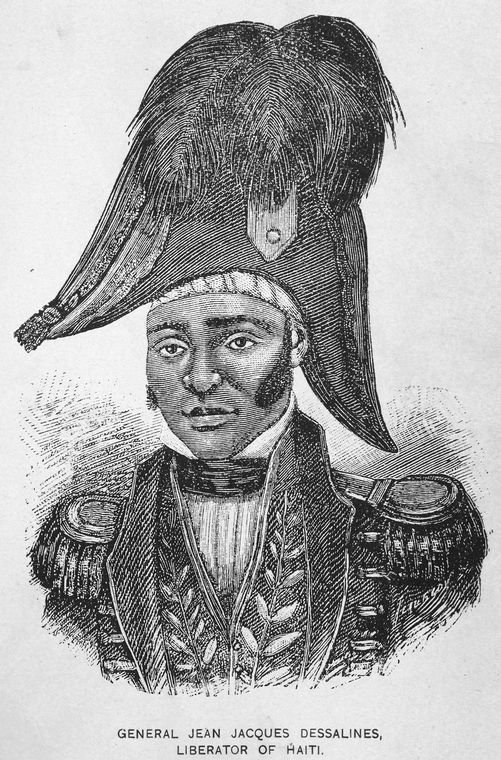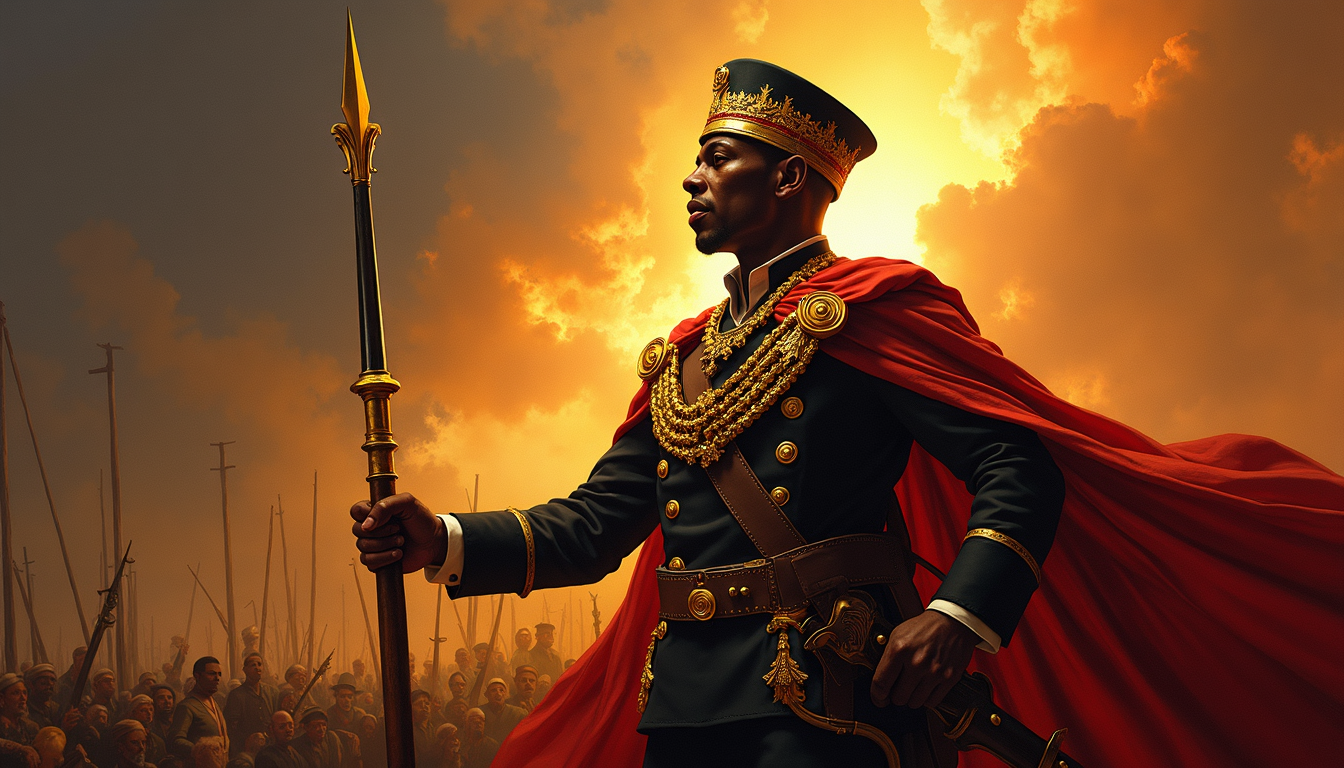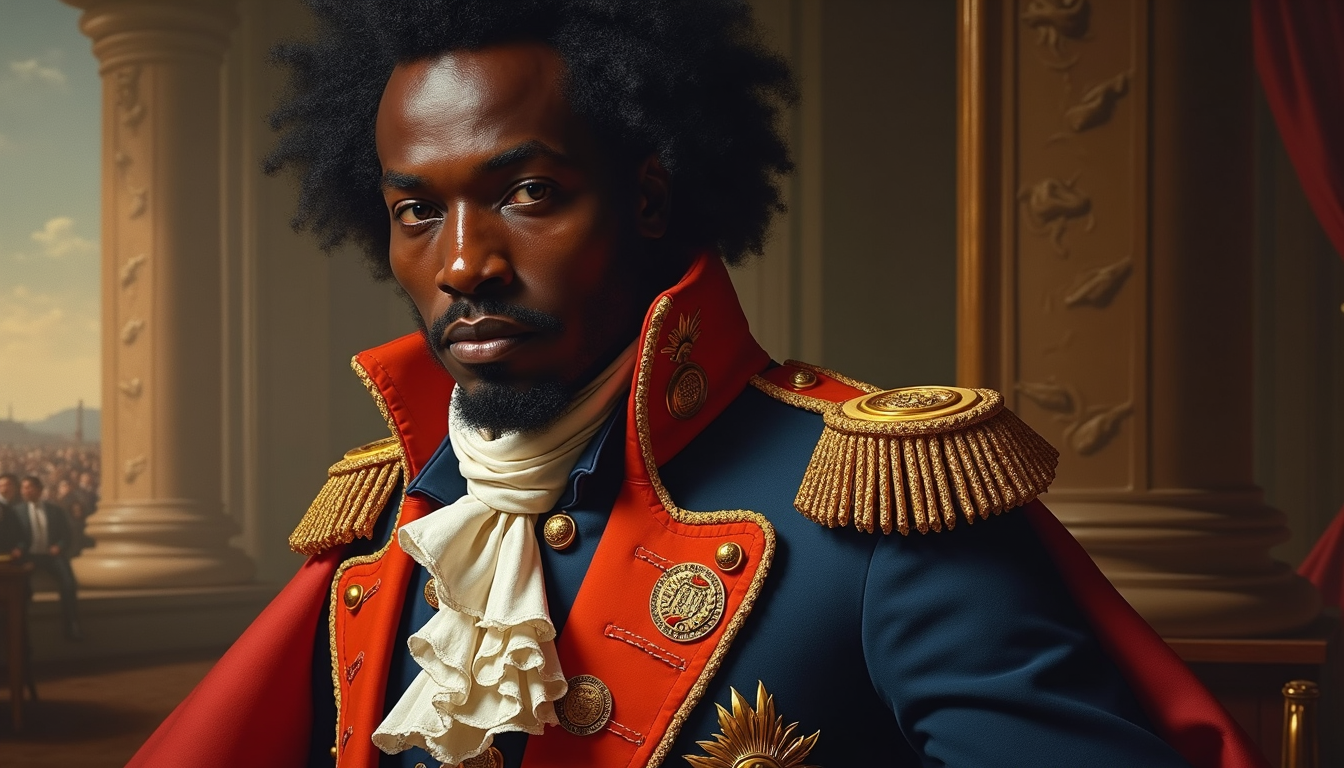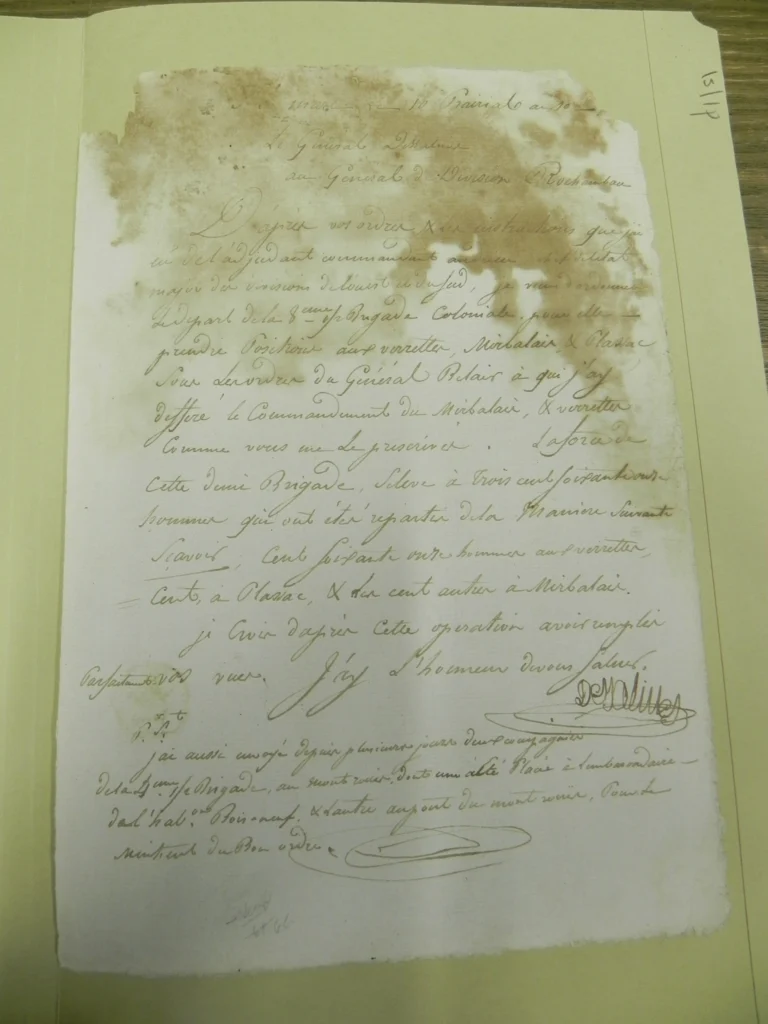Physical Address
304 North Cardinal St.
Dorchester Center, MA 02124
Physical Address
304 North Cardinal St.
Dorchester Center, MA 02124


Introductory Historical Context
The Haitian Revolution (1791-1804) was a seismic event that not only reshaped Haiti but sent ripples of fear and inspiration across the globe. It stood as the ultimate defiance against imperial oppressors, proving that an enslaved people could overthrow a colonial regime and establish a free state—unapologetically Black and self-determined.
At the heart of this revolutionary force stood Jean-Jacques Dessalines, whose military genius and uncompromising devotion to freedom cemented his place as one of the greatest leaders in history. Dessalines’ leadership stretched beyond symbolic resistance—it embodied calculated strategy, territorial control, and an unrelenting drive to dismantle the systems of white supremacy fueling colonial exploitation. The letter he penned to General of Division Rochambeau on May 30, 1802, illuminates a lesser-discussed but crucial aspect of his leadership: the technical precision, foresight, and structure behind Haiti’s fight for liberation.
This note, signed near the heights of Haut-du-Cap, captures not just rebellion but a meticulous military campaign steeped in purpose. Yet, like much of Haitian history, Western narratives often erase or trivialize Dessalines’ role, portraying him as a brute commander rather than a visionary leader galvanizing his people to freedom. To deeply understand Dessalines’ mission, we must dismantle these colonial distortions and honor the intricacy of his strategies.

The Erasure of Historical Truth
The revolutionary story of Dessalines, like many aspects of Haitian history, has been buried beneath layers of colonial revision. Following independence, Western powers—threatened by the audacity of Haiti’s revolt—deliberately rewrote the story, focusing on Toussaint Louverture as a palatable revolutionary figure while erasing or vilifying Dessalines. Louverture was lauded for his diplomacy, whereas Dessalines, often depicted as violent and ruthless, became the scapegoat for Haiti’s unruliness through colonial eyes.
More dangerously, these narratives perpetuate lies that Haiti’s independence was a fluke rather than a meticulously strategized effort sustained by maroon leaders, grassroots resisters, and military organizers like Dessalines. By singling out moments of brutality while ignoring tactical brilliance, imperial forces sought to delegitimize not only Haiti’s revolution but its fundamental right to self-governance. Rochambeau himself, tasked with aiding the French counter-offensive to destabilize Haiti, faced ruthless defiance through Dessalines’ communal, people-powered organizing strategies.
Colonial erasure served to discredit Haiti internationally while limiting its ability to inspire further uprisings in enslaved communities globally. Its legacy continues: mainstream discussions often romanticize or whitewash the revolution without grappling with its full, unfiltered truth.
Spotlight—Forgotten Figures and Their Contributions
Dessalines’ letter reveals a master tactician who understood that Haiti’s liberation required systemic, multi-pronged moves. The redistribution of forces as described was not chaotic but deliberate, emphasizing order and adaptability. By delegating 300 men across key territories—including Saint-Raphaël, Marmelade, and Plaisance—and entrusting Mirebalais to General Belair, Dessalines demonstrated an acute understanding of geography, resource management, and martial obedience.
But we cannot stop at Dessalines alone. He operated within a network of unsung heroes like General Belair himself and women like Sanité Belair, who fiercely commanded troops alongside men in an era where female leadership was seen as subversive. Maroon communities, built by those who escaped enslavement, paved the groundwork for guerilla warfare tactics used effectively against French forces. Figures like François Capois, known for his bravery during the Battle of Vertières, reminded us that courage was as crucial as strategy.
Each armed resistance in Dessalines’ letter persisted amidst diseases, malnourishment, and the odds stacked by imperial powerhouses clinging to their colonies. The broader message? Haiti’s revolution wasn’t won by a single man or series of battles—it was a mosaic of collective bravery, sharp intellect, and an unwavering belief in liberty.

Modern Implications
The echoes of 1802 resonate deeply in Haiti’s present, as the descendants of revolutionaries fight modern battles against neocolonialism, systemic exploitation, and corrupt governance. Dessalines’ vision—embodied in Haiti’s first constitution—was predicated on equality, sovereignty, and redistribution. Yet, to this day, Haiti faces economic exploitation through debt, imposed austerity, and Western policies that intentionally destabilize.
Rochambeau’s counterparts today—the global superpowers enforcing unfair trade practices, or IMF loan stipulations—may wear suits rather than military regalia, but their mission to keep Haitian autonomy in check remains unchanged. Understanding Dessalines is essential to interpreting Haiti’s global struggles of today. The fight against Western interference and internal mismanagement is an extension of the revolution’s unfinished goals.
Call to Awareness and Action
Dessalines understood that freedom could only flourish when coupled with agency and truth. For the Haitian and Black diaspora worldwide, this means reclaiming narratives disfigured by colonial filters. Dessalines’ tactician persona is as vital as his role as the liberator. Sharing documents, breaking barriers between Haitian and Western audiences, and repopularizing forgotten figures of resistance foster empowerment.
We live in a world desperately leaning into erasure as resistance movements rise. But history is the sharpest weapon. Sharing truths unites the global Haitian and Black diaspora, creating a shared agenda for liberation based on cultural reclamation.
Let Dessalines’ rallying cry guide us: “Liberty or Death.” The essence of his message transcends time—it reminds us that silence and passivity are akin to surrender. Act now; spread his story widely.

Conclusion
Liberty, as Dessalines and his comrades envisioned, demanded bravery, strategy, and unity. It was a freedom earned rather than granted, steeped in pain yet unflinchingly celebratory. The letter to Rochambeau offers a glimpse into how detailed and unrelenting Haiti’s fight was. It was a revolution led not by chaos but by the unwavering belief in self-determination.
Dessalines’ legacy urges us to rewrite false histories and reclaim dignity in past struggles and present identities. Haiti’s independence movement is not merely historical—it is timeless, an eternal obligation to resist oppression in all its forms.
FAQ